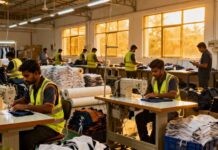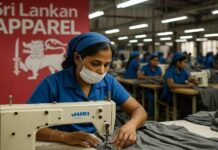The forthcoming liberalisation of the UK Developing Countries Trading Scheme (DCTS) reform, effective early 2026, heralds a pivotal moment for the global apparel and textile sector. It is evident that these reforms will reshape sourcing dynamics and trade flows, offering a strategic lifeline to manufacturers in developing countries and their international partners.
At its core, the revamped DCTS introduces markedly liberalised rules of origin. These new provisions allow garment producers in 16 designated low and lower-middle-income countries to source up to 100% of inputs from anywhere globally while retaining tariff-free access to the UK market. This progressive move liberates textile and apparel supply chains from former stringent requirements mandating specific local value addition. For the industry, this means significant simplification of compliance and enhanced supply chain flexibility, facilitating quicker reactions to fast-changing global market demands. Fashion brands and buyers gaining tariff relief under these relaxed origin rules will enjoy stronger cost competitiveness, a critical factor in the increasingly price-sensitive UK market.
The establishment of broad regional cumulation groups—50 African countries in one bloc and 18 Asian countries in another—further accelerates regional integration. This allows materials sourced within these groups to be treated as originating inputs, fostering increased intra-regional trade, greater economies of scale, and reduced dependence on Western supply chains. For exporters and manufacturers, this will incentivise stronger local partnerships while unlocking new opportunities to innovate product mixes without jeopardising preferential trade status.
Significantly, the UK Developing Countries Trading Scheme reform addresses challenges faced by nations graduating from Least Developed Country status to Enhanced Preference tiers. By maintaining consistent garment-specific origin rules across preference tiers, the UK scheme ensures that export capacity and employment—disproportionately female in the apparel industry—are preserved during transition periods.
Industry voices from regions such as Sri Lanka have welcomed the announcement as ushering in new growth acceleration. Exporters worldwide should seize this moment to recalibrate sourcing models, leverage regional synergies, and engage proactively with UK trade frameworks.
In an era of geopolitical uncertainties and evolving trade policies, the UK’s liberalised DCTS emerges as a beacon of pragmatic trade facilitation. Textile and apparel businesses committed to sustainable growth must embrace these changes—positioning themselves at the forefront of competitive advantage in a highly dynamic global marketplace. This is poised to be a defining chapter for the industry, reinforcing the crucial role of adaptive trade policies in securing resilient, future-ready supply chains.

































